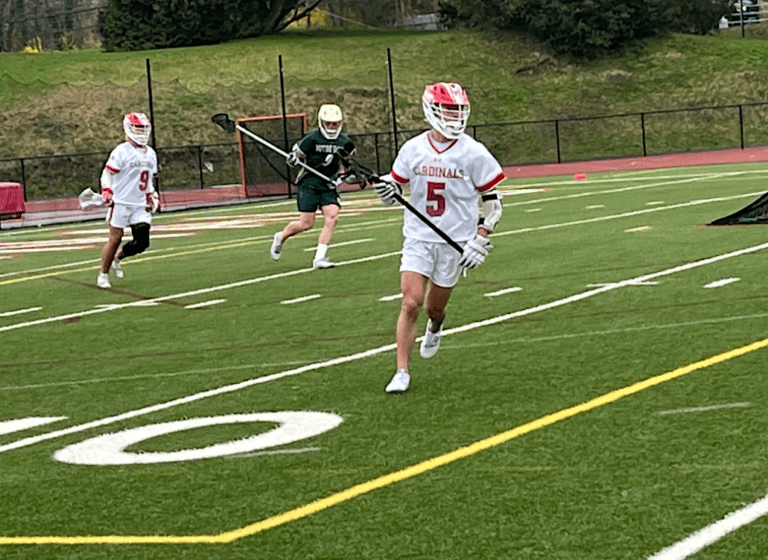It is a privilege as a journalist to sometimes be able to choose what one wishes to write about, so given to me by the editor of this Greenwich Sentinel. That privilege includes the story this week on the nonprofit Barbara’s House. And how lovely it is that this renaming of the Community Centers, Inc. (CCI) honors still living social worker Barbara Nolan who surely acted out in her life her respect for the dignity of every human being. Having written my story based on my interview with Gaby Rattner, succeeding executive director of Barbara’s House, I wanted to learn more about Barbara Nolan by reading her oral history at the Greenwich Library.
So, when Barbara was hired as director of the fledgling CCI back in the 1950’s, that included “community services like education, therapy, counseling, and advocacy,” to Greenwich’s needy populations, along with three “little Community Centers: Banksville, Old Greenwich, and Crispus Attucks, the last “to meet the needs of the Negro population in Greenwich.” So, lots of integrating young adults of mixed color, thus inherent friction. Barbara told of the saving grace of her “incredibly wonderful board” that included Judge Richard T. Davis as president, Robert Webb, and Ann Rockefeller Elliman. “And these people fought very hard to maintain the agency (CCI).”
CCI became known as “an organization that doesn’t stop at the doorstep; it comes in your home. They know the families intimately.” Barbara as an example told of a CCI client in Armstrong Court. “This young man got a scholarship for karate [with classes] held at the Knights of Columbus on the Post Road. The meetings began at four o’clock, and every night he would walk home from there to Armstrong Court. And every night that he did that twice a week, police would stop him. I reminded him of the advice we learned when we brought in the National Coalition of Christians and Jews for training. Their instructors gave examples, ‘If a policeman stops you, you will always be polite, and don’t ever touch your pockets.’ This was real practical advice.”
Barbara told how her “wonderful board supported a workshop with the National Coalition of Christians and Jews it was called in those days. [Now National Conference for Community and Justice] Trainers came in to present a workshop with the police. But it was difficult for the police because their job is order.”
At this point in my reading the oral history, my editor, Beth Barhydt, having read, to her surprise, my Barbara’s House story, informed me her grandfather Bob Webb had served on Nolan’s “incredibly wonderful board.” Would I give Barbara a call so Beth could learn more about her grandfather‘s contributions as board member?
“Bob Webb was a board member at Community Centers when I was the executive director,” Barbara told, when I made contact with her at her retirement community in Guilford. “He was a social worker himself, so that I could always go to him for support. We went through a great deal together. We had to integrate an agency…He guided me, because I was pretty young then and he certainly put me on the right track many times.”
She also praised Ann Rockefeller Elliman’s board member contribution. “Ann and I spoke almost every day for a couple of years. With CCI, it was one crisis after another, and Ann was absolutely wonderful.”
“One of the things that I remember particularly,” she told, “is we had three different groups, grammar school, high school, and college. And I got in touch with the National Coalition of Christians and Jews, and they had trainers. The trainers came in and to each of the groups they stressed, ‘If ever you’re stopped by the police, do not run.”
Barbara recalled an incident in Armstrong Court on the 4th of July. “They had fireworks. The police came down and said, ‘Stop throwing the fireworks.’ There were five young men from 18 to 20, and they continued to throw the fireworks. The police put them in the police car. They were black, with one white boy and his mother came running and said, ‘You can’t take my son,’ and they let him go…They had to go to court. This is over fireworks, mind you, on the 4th of July. This went on for months. With help from the Housing department Barbara “brought down the U.S. Justice Department from Massachusetts that met with the groups who wound up having sensitivity training with the police.”
Another challenging CCI program she told of was its Teen Canteen, first located at the Riverside/Old Greenwich Community Center. “When I tell you the neighborhood was traumatized, it was. There were 350 kids that came. They came in jalopies, they came on bicycles, they came on motorcycles, and we even had one come on a horse.”
“Now, we had a lot of stress,” she continued, “And I always remember Bob Webb’s quote, ‘People are critical of the Canteen and feel we should weed it out, but we will never do that because we will never judge someone by the cut of his hair or the look of his clothes.’ He stuck to that, and he was wonderful. He just supported going forward with all the kids welcomed.”
Barbara reflected also on the funding challenges of CCI through the years. “Frankly, money has always been an issue with CCI, and the United Way had always supported us very well…But apparently, they do not receive money from the United Way anymore. And so, Gaby Rattner [executive director] has had to work hard on finding funding and she’s done a great job.
“Someone once said CCI was like the little engine that could and all I can think of is that the little engine needs an engineer, and Gaby is certainly a great engineer. The little engine could only do what the engineer wants them to do, and she’s been very good at keeping it alive.”



